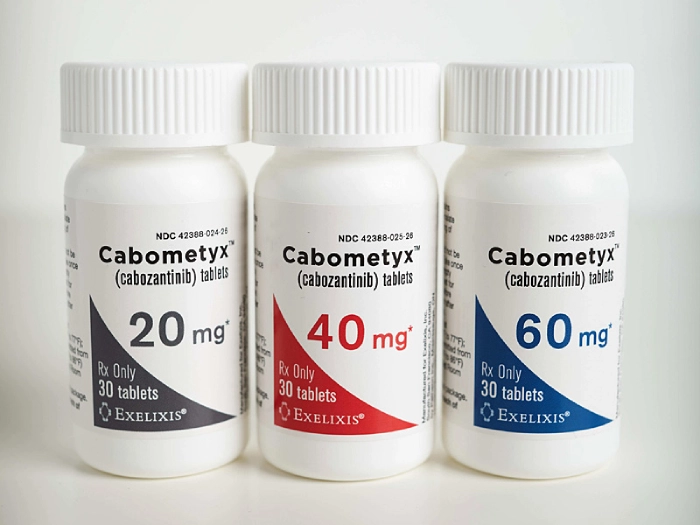Exploring Metabolic Benefits and Thyroid Impacts in Humans and Mice
The original study investigates the impact of elderberry juice (EBJ) consumption on thyroid function in both humans and mice. This research builds upon previous findings that suggested EBJ could prevent weight gain in mice on high-fat diets and increase fat oxidation in overweight humans. The study’s primary focus was to examine how elderberry consumption affects serum thyroid biomarkers, given the crucial role thyroid hormones play in metabolism and substrate oxidation.
Methodology
The researchers analyzed serum samples from two separate trials:
1. Human Trial: 18 participants underwent a 7-day diet-controlled crossover design, including a meal-tolerance test.
2. Animal Trial: 33 male mice were studied over 13 weeks on a high-fat diet, with variations including EBJ powder supplementation and free wheel running.
Key biomarkers measured included thyroxine (T4), thyroid-stimulating hormone (TSH), and thyroglobulin (Tg).
Results
Human Trial:
- Significant increase in T4 levels (PL: 42.3 ± 3.2 vs. EBJ: 49.3 ± 4.1 ng/mL, p < 0.05)
- Significant increase in TSH levels (PL: 0.094 ± 0.012 vs. EBJ: 0.104 ± 0.011 ng/mL, p < 0.05)
- No significant change in Tg levels (p > 0.05)
Animal Trial:
- Non-significant reduction in T4 levels in mice supplemented with EBJ powder (p = 0.07)
The researchers concluded that elderberry juice consumption may influence thyroid metabolism, potentially contributing to the previously observed metabolic benefits. They suggest that the increased T4 and TSH levels in humans align with an enhanced metabolic rate, while the reduction in T4 in rodents might indicate long-term adaptations that require further investigation.
Commentary by SuppBase columnist Alice Winters

The recent study on elderberry juice’s effects on thyroid function presents intriguing findings that warrant closer examination. As a supplement and health product commentator, I find several aspects of this research particularly noteworthy and deserving of critical analysis.
Ingredient Analysis and Formulation
Elderberry (Sambucus nigra) has long been touted for its potential health benefits, primarily due to its rich antioxidant content, particularly anthocyanins. However, this study breaks new ground by exploring its effects on thyroid function, an area previously unexplored. The use of elderberry juice in the human trial and elderberry powder in the animal study raises questions about the comparability of these formulations. The concentration and bioavailability of active compounds may differ significantly between juice and powder forms, potentially impacting the results and their interpretation.
Efficacy and Health Benefits
The study’s findings suggest a potential link between elderberry consumption and thyroid function, which could have far-reaching implications for metabolic health. The observed increases in T4 and TSH levels in humans are particularly intriguing, as they align with an enhanced metabolic rate. This could explain the previously reported improvements in fat oxidation and body composition associated with elderberry consumption.
However, it’s crucial to note that while these changes were statistically significant, their clinical significance remains to be determined. The magnitude of the increases in T4 and TSH, while noteworthy, may not necessarily translate to meaningful physiological changes in all individuals.
Safety and Side Effects
The study doesn’t report any adverse effects related to elderberry consumption, which is encouraging. However, the impact on thyroid function raises important safety considerations. For individuals with pre-existing thyroid conditions or those taking thyroid medications, elderberry supplementation could potentially interfere with their hormonal balance. This underscores the need for caution and medical supervision when considering elderberry supplements, especially for these populations.
Dosage and Duration
The human trial involved a short-term intervention of 7 days, while the animal study lasted 13 weeks. This discrepancy in duration makes it challenging to draw parallel conclusions between the two species. The contrasting effects observed – increased T4 in humans versus a non-significant reduction in mice – highlight the potential for time-dependent responses that warrant further investigation.
The study doesn’t provide specific dosage information for the human trial, which is a significant oversight. Without this crucial detail, it’s impossible to make informed recommendations or draw comparisons with other elderberry supplements on the market.
Market Trends and Consumer Interest
This research taps into several current market trends, including the growing interest in natural metabolic boosters and thyroid health supplements. The potential dual benefit of weight management support and thyroid function modulation could make elderberry an attractive option for health-conscious consumers.
However, it’s important to caution against premature marketing claims. While the results are promising, more robust, long-term human studies are needed to confirm these effects and establish optimal dosing regimens.
Target Audience Suitability
Based on the study parameters, elderberry supplements might be particularly appealing to overweight individuals looking to improve their metabolic health. However, the limited scope of the human trial (18 participants) and the lack of diversity data make it difficult to generalize these findings to broader populations.
Research Quality and Future Directions
While this study opens up new avenues for elderberry research, several limitations must be addressed in future investigations:
1. Larger sample sizes in human trials to improve statistical power and generalizability.
2. Longer-term human studies to align with the duration of the animal trials.
3. Inclusion of diverse populations to assess potential variations in response.
4. Standardization of elderberry formulations between human and animal studies for better comparability.
5. Investigation of dose-response relationships to establish optimal supplementation protocols.
6. Exploration of potential interactions with medications, particularly those affecting thyroid function.
In conclusion, this study on elderberry’s effects on thyroid function represents an exciting development in our understanding of this popular supplement. The potential metabolic benefits suggested by the thyroid hormone changes are intriguing and could open up new applications for elderberry in health and wellness.
However, as with all emerging research, these findings should be interpreted with caution. The complex interplay between elderberry compounds and thyroid function requires further elucidation, and the long-term effects of supplementation need to be thoroughly investigated. Consumers and healthcare providers should view these results as preliminary evidence rather than definitive proof of elderberry’s thyroid-modulating effects.
As we await more comprehensive research, individuals interested in elderberry supplementation for metabolic health should consult with healthcare professionals, especially if they have pre-existing thyroid conditions. The promising results of this study underscore the need for continued scientific inquiry into the multifaceted health benefits of elderberry, potentially paving the way for more targeted and effective supplement formulations in the future.



